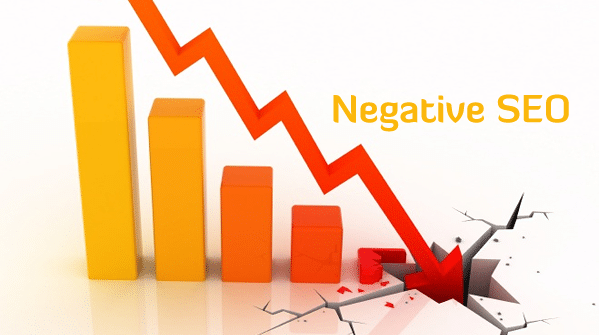The Internet resembles a lot to densely populated areas. It has a lot of stuff that is uploaded on a daily basis and whenever you go online to search about something, you find yourself overwhelmed with a barrage of search results. There are literally thousands of them and it is very obvious that you do not have all the time in the world to go through each and every single one of them. Now the users have a tendency to check out the top 2 (at max 3) search results and if they do not find what they are looking for, it is highly likely that they will modify their query and search again.
This is the exact point where Search Engine Optimization (SEO) kicks in. In layman’s language, SEO is a set of practices and a handful of techniques that help webmasters to get their content to the top slots of search results, especially for specific keywords or terms. SEO works to give positive results to your efforts if done correctly. But there are those who will find ways to utilize it for the reverse (read negative) effects.
In today’s marketplace, there are some unethical companies that feel like the way to succeed is to tear down the brand name and image of other companies in order to make a name for yourself. While Google and a few other search engines have algorithms to detect such malicious activities, the ugly truth is that these unethical companies still exist to make things worse for their rivals. When these unethical companies play their cards and you get under an ‘SEO attack’, things sure can go south and it becomes very difficult to find a way out of such situations. It is difficult, not impossible though.
The first and foremost thing you should start with is a deep knowledge of the basics. Let us get some insight and find out what can you do about an SEO attack.
Understanding SEO

Search Engine Optimization is an exquisite set of practices that obliges both Google’s algorithms and user experience. The ranking elements that play into Google’s algorithm have different weights and significance, and the algorithm changes on a regular basis.
If you offer profitable information on your site for the visitors, outline a decent user experience, and execute all the known algorithms, your site has a decent chance to climb up in the search engine rankings for your company’s focused keywords. This sort of SEO is some of the time called white hat SEO, yet you can simply consider it as a proven and ethical strategy. The level of competition will totally depend on the type of industry you choose.
Related Post: Catching Up With SEO: Trends and Updates
To gain the higher ground against the rivals, a few organizations try to make use of unethical SEO practices. These terrible SEO practices often called the black hat SEO, are penalized by Google when caught. But in spite of knowing this fact, there are some who are willing to risk their website’s future in order to get to higher rankings.
Now, what is Negative SEO?

As Google has turned out to be quicker in catching the website admins who utilize unethical SEO practices and has brought in harsher punishments for the guilty parties (like reducing the rankings or completely prohibiting the sites, and so forth). Yet there are a few organizations that are desperate for higher rankings have discovered ways to hack into the websites of their competitors and implement some awful strategies on those sites.
In any case, they don’t need to go that far. There are a lot of tactics that they can execute to influence it to show up as though your site is doing some sketchy things, regardless of whether it’s scraping and posting your content, causing issues with your local profile, or building a large number of links from faulty or questionable websites.
Related Post: What Is Negative SEO And What Is Not?
The one and only goal of negative SEO is to lower the rankings of your competitors on the major search engines. And the webmasters using this strategy believe that when the competitors are out of the competition, your rankings will elevate automatically.
But how will you know that you are under an SEO attack? For starters, the majority of negative SEO attacks come in the form of website hack, fake and absurd reviews and the most lethal, questionable or spam links. If you observe these signs, it is very likely that you are under an SEO attack. Regular maintenance is one way to be sure about the fact whether your website has been hacked or not. Another thing to consider here is taking a look at the website’s analytics and if you observe a sharp increase or decrease in the traffic, there is surely a red flag situation on the rise.
But what can you do if you become the victim of a negative SEO attack
If you suspect that you are under a negative SEO attack, there are a few things to be done, even for the damage that looks irreversible. Here are some steps that you can take in order to reverse the effects of an SEO attack and maybe, to prevent one from happening in the first place.

- Keep an Eye on the quality of Links: Auditing your website’s links on a regular basis is one way to be prepared for a negative SEO attack. When you regularly monitor your links, you will be aware of the quality of links coming in and it will surely help you to keep a check on an upcoming attack on your website.
- Checking Website Speed: If your website is experiencing a slow down issue all of a sudden, then there is a very high possibility that you are under attack by a virus, hacker or for the worse, negative SEO. The speed of your website is one of the major aspects that help you to get higher in the search engine rankings. If you experience anything like that, it is best to go through the codes of your website for any possible hacks and contact your web hosting provider as soon as possible.
If your website has been the target of a negative SEO attack, panicking will only make things worse. The best way out is to act quickly with a peaceful state of mind before the issue gets out of hands.
Also Read: 6 Common Myths About SEO







